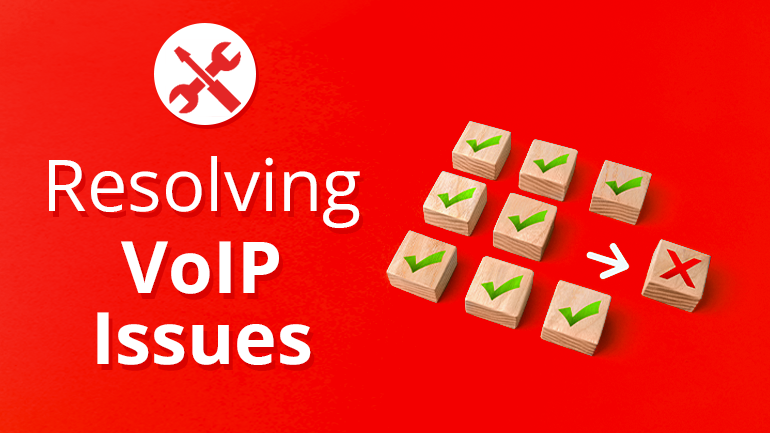VoIP offers businesses communication advantages, but reliability is crucial. The article explores common issues like bandwidth constraints, latency, and security vulnerabilities. It provides solutions like QoS, firewalls, and UPS systems to ensure a smooth VoIP experience for businesses.
VoIP adoption offers transformative benefits, yet challenges loom. Selecting a reliable provider is paramount, demanding thorough research on reputation, features, and support. Compatibility, call quality, scalability, and network readiness necessitate meticulous planning. Security, emergency services, cost management, compliance, number portability, and employee readiness further demand attention. Successful migration hinges on strategic planning and informed decision-making.
In the dynamic realm of modern business, connectivity is no longer a luxury but a vital necessity. With 5G and VoIP technologies leading the charge, a profound revolution is underway in telecommunications. This article delves into the synergy between 5G’s lightning-fast connectivity and VoIP’s versatile communication, poised to redefine business interactions.
Disasters can disrupt businesses and organizations at any time. How can they prepare and ensure continuity of their essential functions? This article explores how VoIP, a flexible and reliable communication technology, can offer various advantages in disaster recovery and business continuity planning.
As businesses adapt to the demands of today’s fast-paced environment, this article explores the 10 indispensable features that can transform a business phone system into a strategic asset. From VoIP capabilities and mobile integration to unified communication, CRM software integration, and advanced call routing, discover how these features enhance internal operations, optimize customer interactions, and contribute to improved efficiency, productivity, and customer experiences.
In the dynamic realm of modern business, meeting customer expectations is a challenge. Unified Communications (UC) addresses this by integrating diverse communication tools into a cohesive platform. This article explores UC’s benefits, such as omnichannel experiences, personalized interactions, real-time responsiveness, enhanced collaboration, employee mobility, seamless integration with applications, and leveraging data analytics for continuous improvement. UC transforms the customer journey, fostering satisfaction, loyalty, and long-term success in the competitive business landscape.
VoIP readiness assessment is vital for cost-effective business communication. Define objectives, assess costs, scalability, integration, infrastructure, equipment, security, and training. Pilot testing and vendor selection are key. Develop a migration plan for a smooth transition, resulting in enhanced communication, productivity, and cost savings.
In our interconnected world, voice calls remain crucial for communication. “Origination” and “termination” are vital terms in call routing. This article explores these concepts, beginning with origination, the process of initiating calls from devices like landlines or mobiles. It then covers termination, completing incoming calls to recipients’ devices. We delve into components, quality, service selection, and regulatory aspects, highlighting the importance of understanding these elements in the world of telecommunications.
BYOD VoIP, or “Bring Your Own Device Voice over Internet Protocol,” lets employees use personal devices like smartphones, tablets, or laptops for business calls through VoIP. This approach enhances flexibility, productivity, and cost savings, but it also poses challenges like security risks, device compatibility, and privacy concerns. Implementing BYOD VoIP effectively requires clear policies, network readiness, robust security measures, and employee training.
In today’s fast-paced and competitive business landscape, resellers are constantly seeking ways to differentiate themselves, establish a strong brand identity and offer unique value propositions to their customers. White label Voice over Internet Protocol (VoIP) solutions have emerged as a powerful tool for resellers looking to gain a competitive edge in the telecommunications market.













